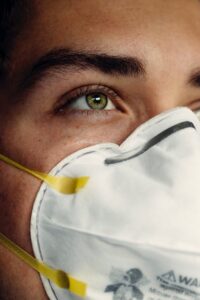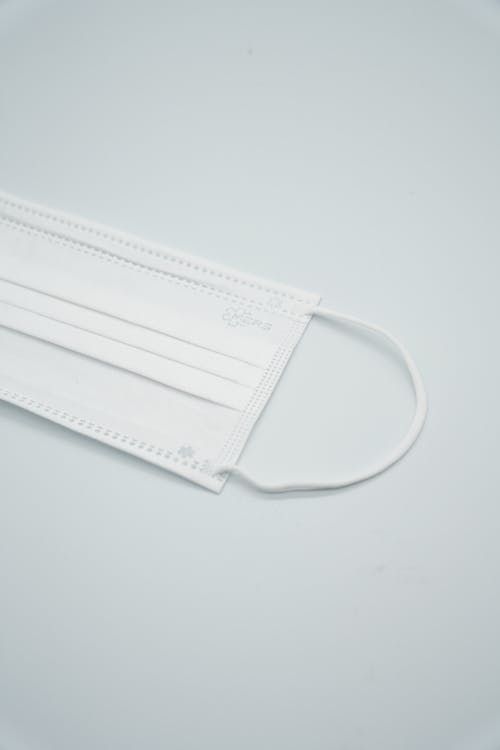Types of Masks
FFP stands for Filtering Face Piece. So, you have FFP1, FFP2 and FFP3. The numbers following are the level of protection. FFP3 is the highest level of protection.
During the pandemic, FFP3 masks were the recommended protection, whether as a disposable or as a half face respirator mask, whilst doing AGP’s (Air Generated Procedures). These treatments generated particles in the air which could spread from person to person. During the colder months, there are lots of germs around causing the flu, chest infections, strep A and Covid. Some practices have decided to bring in FFP3 masks whilst doing AGP’s. Maybe it's just this time of year when bugs are around, who knows?
Although, FFP3 masks were advised during the pandemic, Hospitals had priority. As FFP3s were hard to come by, FFP2s became adequate.
Companies couldn’t produce them fast enough; demand was greater than supply. Fake masks were in abundance. Lots of practices were being scammed, thinking they were buying genuine products. Not only were single use FFP2 & FFP3 popular in the fake market but we also came across some half face respirators.
For many people wearing a mask was a totally new entity. They were unaware about the different masks and if they failed a fit test, they didn't understand the importance of mask fit testing. People assumed that if they passed an FFP3 mask this meant they could wear any FFP3 mask. Some people still today continue to make this mistake. FFP3 is the level of protection and not the style. For example, if you buy a size small top in one shop, will you be a small size in every other shop? Probably not. Same goes for a mask. You must ensure it is the correct code and brand you've been tested and passed on. They all have different codes to show they're not all the same shape.
There are lots of different types of single use and half face masks on the market. 3M / GVS / KOLMI / ALPHA / DRAEGER / JSP / HANDANHY are just some of the brands.
Post pandemic and a lot of practices have reverted to wearing the surgical mask whilst doing treatments. However, these offer little protection as they don’t come under the recommended FFP. They aren't tight fitting and particles in the air can still get through.
How to check for fakes
When examining a mask, you need to be able to check for certain things to ensure it isn’t a fake. Every mask, whether it is a disposable filtering face piece, or a half face respirator will have certain markings on them. If these markings are missing or aren’t correct, then the mask you are looking at is a fake and hasn’t gone through the relevant checks to ensure it is adequate for the person wearing it in their industry.
You need to check the mask has the following. On a disposable the markings are on the outside of the mask. On a half face respirator, they maybe on the inside or in some cases on the straps.
CE number – meets European standards
EN number – meets European norm requirement for that product-
NR – non reusable.
R – reusable
D – these filters have passed the Dolomite clogging test, giving the user better breathing resistance
Once you have decided the RPE is ok then you should also check for any damages
Filters – are they in the mask?
Membranes / straps - Splits or rips
Any issues with the mask could mean you aren’t as protected as you think.
Don’t forget each fit test you have done is only valid up to 2 years or if your facial shape changes. Use an Accredited fit tester to ensure you are getting the best service.
The re-opening of Dental Practices
Dentistry was hit hard due to the Covid-19 epidemic. This meant surgeries having to close and the lack of PPE available would cause a further delay in re-opening.
As a team, we needed to think of something fast to get Cavity back up and running and able to supply locum staff to dental practices.
Cavity become accredited in fit test training as we found that other training provides were inadequate. This provided us with more confidence and knowledge on Mask Fit Testing. We sat exams, both written and practical’s through BSIF and HSE. This also gives you the knowledge that we are qualified in Fit Testing, so you are getting a great service.
We began fit testing our staff across the country. Next stage was to get into dental practices by helping them get their staff fit tested on the correct mask. This would enable practices to re-open and start to see their patients again. Gradually, dental practices started to open.
We now offer Qualitative and Quantitative Fit Testing and Fit Testing Training!
